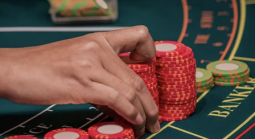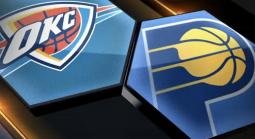Draconian Kentucky Gambling Law Likely to Spook Regulated Sports Betting Operators
This past week, Kentucky resident Billi Jo Woods filed a class action against the online gambling site Bovada, relying on an old draconian (1800's) law that allows those who have sustained losses from gambling to seek restitution from those that profited off them.
Bovada is licensed in Antigua, a Caribbean nation that previously received a positive ruling related to a World Trade Organization dispute over its Web gambling industry and competitive fairness. Furthermore, a U.S. Circuit Court of Appeals for the District of Columbia in June seemed to indicate that online bets take place in the location of a server. In the case of Bovada, that server where the bets take place is in Antigua. U.S. Circuit Court of Appeals for the District of Columbia ruling supports the Seminole Tribe argument that bets occur on tribal land where the server is located. US vs. Jay Cohen in 2000 found otherwise. As such, Bovada can certainly offer the defense that they do not accept bets in the commonwealth.
The WTO ruling was handed down in 2009:
"During the last decade, online gambling grew in popularity while complex and overlapping gambling laws in the United States left its legal status ambiguous. The United States’ efforts to prosecute foreign-based suppliers of online gambling services prompted Antigua to file a complaint in the WTO, in which it claimed that the United States had violated its GATS commitment to free trade in recreational services. The WTO ultimately ruled in favor of Antigua and awarded Antigua the right to suspend $21 million annually in intellectual property rights held by U.S. firms. This dispute exemplifies the potential for market access commitments to have unexpected and undesirable consequences. The potential for suspending intellectual property rights as a retaliatory measure may increase the leverage of small countries in trade disputes with large countries, but the implementation and management of such a suspension may be difficult and costly."
That $21 million has yet to be paid.
The Kentucky statute is the same used in a 2010 lawsuit where the state of Kentucky successfully sued PokerStars for $300 million in damages.
The commonwealth's "372.020 Recovery of Gambling Losses From Winner or his Transferee" reads as follows:
"If any person loses to another at one (1) time, or within twenty-four (24) hours, five dollars ($5) or more, or anything of that value, and pays, transfers or delivers it, the loser or any of his creditors may recover it, or its value, from the winner, or any transferee of the winner, having notice of the consideration, by action brought within five (5) years after the payment, transfer or delivery. Recovery may be had against the winner, although the payment, transfer or delivery was made to the endorsee, assignee, or transferee of the winner. If the conveyance or transfer was of real estate, or the right thereto, in violation of KRS 372.010, the heirs of the loser may recover it back by action brought within two (2) years after his death, unless it has passed to a purchaser in good faith for valuable consideration without notice."
The implications are great, but perhaps more so for operators seeking a license in Kentucky than those operating offshore such as a Bovada. The commonwealth recently legalized mobile sports betting but there is little to suggest lawmakers intend to scrap Statute 372.020.
Going after Bovada is challenging, especially since much of the information pertaining to the defendants is outdated. Case in point, Calvin Ayre, named among the defendants, has long been disassociated with Bovada.
John Holden of Legal Sports Report writes:
"The plaintiff and potential class likely face some challenging obstacles ahead. The most immediate is likely to be ever getting service on the defendants, but even long-term enforcement of any potential judgment is likely to be much more difficult than enforcing a judgment against defendants located within the United States."
This won't be the case for gambling companies located in Kentucky.
Already, BetMGM has been sued by an individual for allegedly "preying on his gambling addiction with repeated cash bonuses intended to keep him gambling".
The plaintiff in that case, Sam Antar, is the nephew of a legendary consumer electronics chain pioneer, and later convicted felon, Eddie Antar.
Antar’s lawsuit focuses on a period of several months in 2019 and 2020 during which he claims to have gambled close to $30 million through a series of more than 100,000 bets placed largely through BetMGM’s mobile casino.
The "372.020 Recovery of Gambling Losses From Winner or his Transferee" law is as old, if not older, than other laws currently on the book in the commonwealth that are sure to raise some eyebrows.
In Kentucky in the year 2023, it is unlawful to go fishing with an arrow and bow, women are not allowed to buy fancy hats without taking their husband’s permission, every citizen of Kentucky must take shower once every year, women are not authorized to marry the same person more than thrice, dogs are not permitted to molest cars (1900's law obviously) and it is against the law to hunt in a moving vehicle, except for whales.
- Gilbert Horowitz, Gambling911.com















